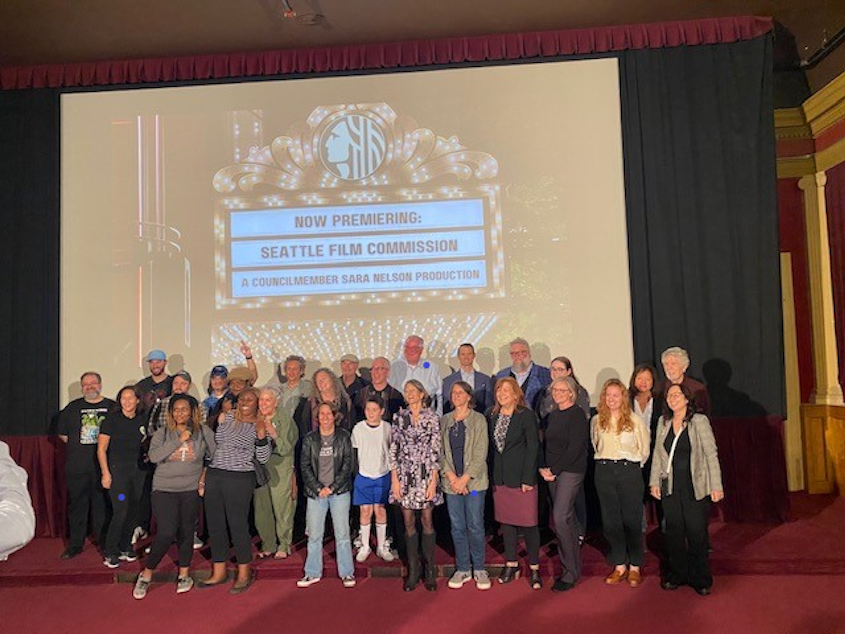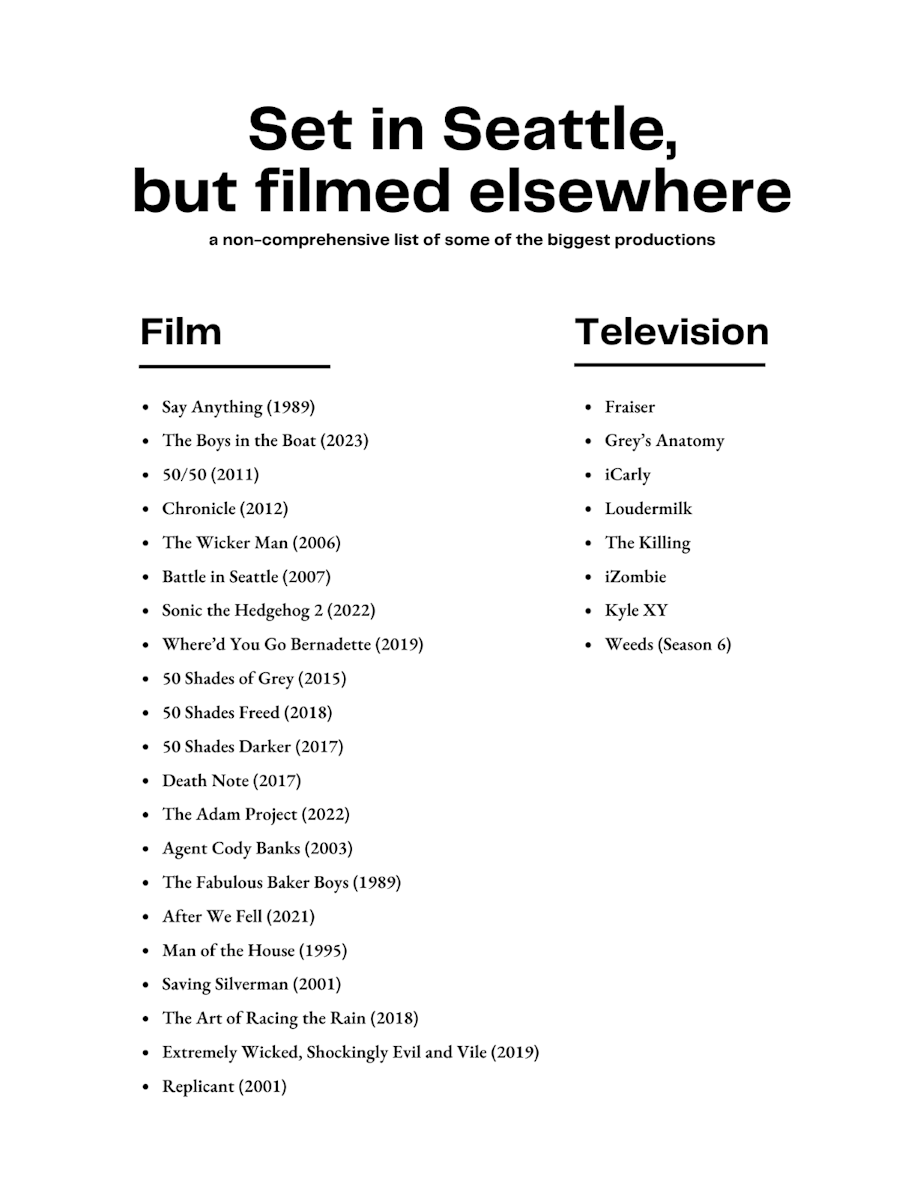New Seattle film commission will help bring Hollywood productions to the city

This week, the Seattle City Council unanimously voted to create a long sought-after Seattle film commission to support local film projects. The measure has the potential to make a major impact on filmmaking in Seattle.
The film commission will be the bridge that connects big-budget producers with the Seattle film industry, to create jobs for locals on the sets of Hollywood productions filmed here.
The process started in 2020 when a group of local filmmakers and producers came together to address inequity in the film industry. The resulting task force, with an evolving roster of members that grew to 20 people at its height, created a pamphlet of recommendations for the city that called for the formation of a film commission.
“It kind of came as a result of BLM and the protests,” said Abie Ekenezar, a former member of the film task force. “I can't tell you how many times I've worked on productions, and I was able to count on one hand, how many [Black, Indigenous, and people of color] were involved. And these are big productions. So, the whole reasoning for the task force was to kind of build equality and diversity.”
While the task force was initially aimed at addressing equity in the film industry, additional problems within the industry became apparent. For instance, big budget movies and shows — like "Greys Anatomy" or "Frasier" —used Seattle as a setting, without actually filming in Seattle.
In recent years, both King County and Washington state have stepped in to support the local film industry. In 2021, the county opened Harbor Island Studios, a 117,000-square-foot warehouse that was revamped into an indoor film studio and soundstage. The space is expected to entice Hollywood film and TV producers to bring their projects to Seattle.
Sponsored
At the state level, the Legislature passed a bill last March that will increase the annual cap on tax breaks for filmmakers from $3.5 million to $15 million. Before the bill, Washington state had the third smallest film incentive in the country. But the new law makes Washington state more competitive with other Pacific Northwest filming destinations — and could end the trend of filming movies that are set in Seattle in Vancouver, British Columbia.
“Increasing the [film incentive] fund to $15 million is a huge game changer for the film industry,” said Amy Lillard, executive director of Washington Film works, the organization tasked with managing the state incentive program. “Not only can we financially support films, but we also have $500,00 over the next two years to do workforce development focused on people from historically excluded communities. We can also do career-connected learning, which is helping young people realize that film is a pretty great career. And business development, like [figuring out] how we bring in the shows that we want here in Seattle.”
With the formation of the film commission, which will be partnered with Seattle’s Office of Economic Development, Seattle has joined the county and state in taking crucial steps to support the film industry.
Councilmember Sara Nelson, who wrote the legislation for the formation of the film commission, said she believes that the film industry is vital to Seattle’s creative economy.
“I'm focusing on film because it is the most commercially viable sector within the creative economy,” Nelson said. “Film supports the greatest number of jobs in the widest diversity of professions and artistic disciplines…one film production employs about 200 people. And it's not like those [film] producers come with a whole bunch of people. No, they hire people here in Seattle. So, we’re talking jobs, and it's living wage jobs, and that is why labor is so supportive of this endeavor.”
Sponsored
But the film commission will function as more than just a booster for jobs in the creative economy. It will also be responsible for managing relationships between Hollywood and local filmmakers, and advocating for policies that support growth in the industry.
Vee Hua, a local filmmaker who served on the film task force, said the city should keep its commitment to equity top of mind as the Seattle film industry gains new ground.
"Pipelines and support continue to be much-needed for diverse communities which have been historically underrepresented in film, and we shouldn't fall victim to scarcity mentality, which might dictate that there isn't enough space for all communities to tell their stories," Hua said. "There is enough space."
For now, the Seattle film industry is celebrating the joint efforts of the city, county, and state to support its health and vitality. Nelson said she expects the film commission to form in early 2023 — then the real work to boost Seattle’s film industry and make it more equitable will begin.





